AI Accident Lawyer: The future of legal assistance is here. Learn how AI is revolutionizing accident claims and how it can benefit your case.
Accidents happen, and when they do, the aftermath can be overwhelming. Dealing with injuries, insurance claims, and legal procedures can be a daunting task. Enter the AI accident lawyer—a cutting-edge solution that harnesses the power of artificial intelligence to streamline and enhance the personal injury claims process.
In this blog post, we’ll delve into the world of AI accident lawyer, exploring their benefits, limitations, and how they are transforming the legal landscape.
Accident Lawyer: Your Shield and Sword in the Aftermath of an Accident

Accidents, whether they involve cars, slip and falls, or workplace incidents, can leave victims with a tangle of physical, emotional, and financial burdens. This is where an accident lawyer steps in, serving as both a protective shield and a powerful sword in your fight for justice and fair compensation.
Understanding the Complexities:
Accident cases often involve intricate legal concepts like negligence, liability, and comparative fault. An experienced accident lawyer possesses the expertise to navigate these complexities, ensuring that your rights are protected and that you are not taken advantage of by insurance companies or opposing parties.
They understand the nuances of personal injury law, the tactics used by insurance adjusters to minimize payouts, and the strategies needed to maximize your compensation.
Beyond the Courtroom:
While accident lawyer is a skilled litigator, their role extends far beyond the courtroom. They act as your advocate throughout the entire claims process, from the initial investigation to settlement negotiations and, if necessary, trial.
They handle all communication with insurance companies, ensuring that your interests are represented and that you are not pressured into accepting an unfair offer.
They also work with medical professionals to document your injuries and ensure you receive appropriate treatment.
The Power of Experience:
Choosing an accident lawyer with a proven track record is crucial. Experienced attorneys have a deep understanding of the legal landscape, strong negotiation skills, and a network of resources to support your case.
They know how to gather and present evidence effectively, how to anticipate challenges, and how to build a compelling argument for your compensation.
A Personal Touch:
Beyond their legal expertise, an accident lawyer offers a human touch that is invaluable during a difficult time. They understand the emotional toll that accidents can take and provide compassionate support and guidance throughout the process.
They listen to your concerns, answer your questions, and provide reassurance, allowing you to focus on your recovery while they handle the legal battle.
When an Accident Changes Your Life:
Accidents can have devastating consequences, from life-altering injuries to financial hardships. Accident lawyers are there to help you pick up the pieces and rebuild your life.
They fight for your right to fair compensation, ensuring you have the resources to cover medical expenses, lost wages, and other damages. Their advocacy can make a significant difference in your recovery and future well-being.
Accident lawyers are not just legal professionals; they are partners in your journey toward recovery and justice. Their knowledge, experience, and dedication can make a world of difference in the outcome of your case.
Types of Accident Cases:
Accident lawyers handle a wide range of personal injury cases, including:
- Car accidents: Collisions involving cars, trucks, motorcycles, bicycles, and pedestrians.
- Slip and fall accidents: Injuries sustained due to hazardous conditions on someone else’s property.
- Medical malpractice: Harm caused by the negligence or errors of healthcare professionals.
- Product liability: Injuries resulting from defective products.
- Workplace accidents: Injuries sustained while on the job.
- Wrongful death: Cases where negligence leads to the death of a loved one.
If you’ve been injured in an accident, don’t hesitate to seek their counsel. They can help you understand your rights, navigate the legal process, and secure the compensation you need to move forward with your life.pen_sparktunesharemore_vert
What is an AI Accident Lawyer?
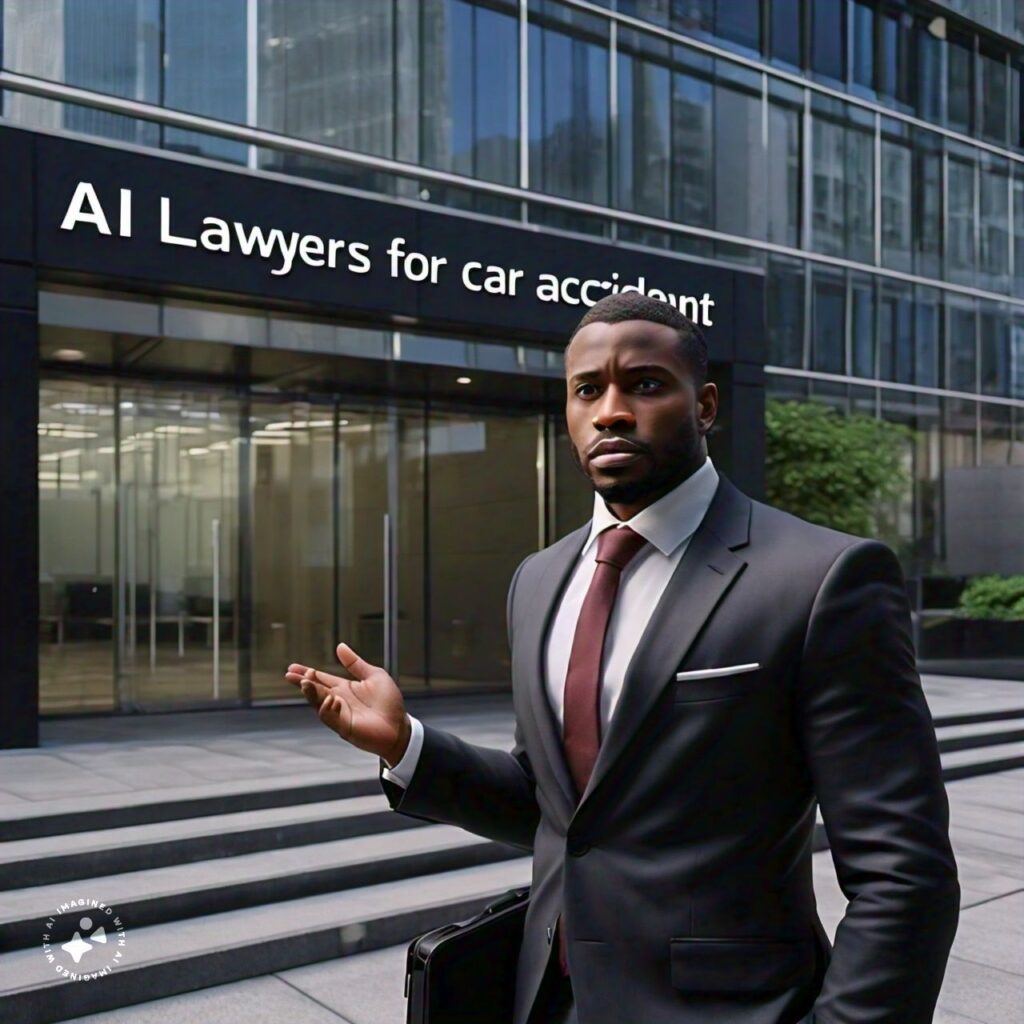
An AI accident lawyer, at its core, is a software platform that leverages artificial intelligence (AI) to revolutionize the personal injury claims process. It’s not a robotic attorney arguing in court but rather a sophisticated tool designed to assist both individuals and legal professionals in various aspects of a claim.
Key Components of an AI Accident Lawyer:
- Data Collection and Analysis:
AI accident lawyer employs natural language processing (NLP) and machine learning to gather and analyze vast amounts of data related to an accident. This data can include police reports, medical records, witness statements, insurance policies, and even social media posts. The AI meticulously combs through this information, extracting relevant details, identifying legal issues, and assessing the overall strength of a claim.
- Case Assessment and Prediction:
Based on the analyzed data and legal precedents, AI algorithms can predict the potential outcome of a case. They can estimate the likelihood of success, potential settlement amounts, and the expected duration of the legal process. This predictive capability empowers both victims and lawyers to make informed decisions about how to proceed with a claim.
- Document Generation:
AI accident lawyer automate the creation of various legal documents, such as demand letters, settlement agreements, and even court filings. This not only saves time but also minimizes the risk of errors, ensuring that legal paperwork is accurate and comprehensive.
- Communication and Negotiation:
Some advanced AI platforms can engage in communication and negotiation with insurance adjusters. Using data-driven insights and legal strategies, they can advocate for fair settlements on behalf of their clients. Additionally, AI can facilitate communication with clients, provide updates, answer questions, and streamline the information exchange.
How AI Accident Lawyer is Used:
- Self-Service Platforms: Individuals can use AI accident lawyer platforms to handle their personal injury claims themselves, especially for simpler cases. These platforms often provide guidance, document templates, and negotiation support.
- Tools for Lawyers: Law firms are increasingly adopting AI tools to augment their legal practices. AI accident lawyer can help lawyers with research, document drafting, and case analysis, allowing them to focus on more complex legal tasks and client interactions.
- Hybrid Models: Some companies offer a hybrid approach, combining AI technology with human legal professionals. Clients benefit from the efficiency of AI while having access to experienced lawyers for consultations and strategic guidance.
While AI accident lawyer offers significant benefits, it is not a substitute for legal counsel in every situation. Complex cases, high-stakes litigation, and sensitive legal matters often require the expertise and judgment of a human lawyer. AI should be viewed as a valuable tool that enhances legal services, not a replacement for legal professionals.
How AI Accident Lawyer Work
Let’s go into detail on how AI accident lawyer work, breaking down the processes and technologies they leverage to assist with personal injury claims:
- Data Input and Organization:
The process begins with you providing the AI accident lawyer with essential information about your case. This includes details about the accident, such as the date, time, location, and parties involved. You’ll also need to upload relevant documents like police reports, medical records, insurance policies, and any witness statements or photos.
The AI platform then utilizes optical character recognition (OCR) technology to extract text from these documents, making the information machine-readable. It also organizes and categorizes the data, identifying key details like injuries sustained, property damage, and potential legal claims.
- Natural Language Processing (NLP) and Analysis:
Once the data is organized, the AI accident lawyer employs natural language processing (NLP) to analyze the text within the documents. NLP enables the AI to understand the meaning and context of the language used in police reports, medical records, and legal documents. It identifies key phrases, legal terms, and relevant facts that contribute to building your case.
The AI then cross-references this information with vast databases of legal statutes, case law, and insurance regulations. It analyzes similar cases to identify patterns and precedents that could impact your claim. This comprehensive analysis allows the AI to assess the strength of your case and predict potential outcomes.
- Case Assessment and Calculation:
Based on the data analysis and legal research, the AI accident lawyer can provide you with a detailed assessment of your case. It estimates the potential value of your claim, considering factors such as the severity of your injuries, medical expenses, lost wages, and pain and suffering.
The AI may also provide a prediction of the likelihood of success if your case goes to trial, as well as an estimated timeline for resolution. This information empowers you to make informed decisions about settlement offers and legal strategies.
- Document Generation and Communication:
One of the most significant advantages of AI accident lawyer is the ability to automate document generation. The AI can quickly draft legal documents like demand letters, settlement agreements, and court filings. These documents are tailored to your specific case and adhere to legal standards, saving you time and ensuring accuracy.
Additionally, some AI platforms offer communication features that enable you to interact with the AI directly. You can ask questions, request updates, and receive guidance on legal matters. Some platforms even have chatbots that can answer common queries and provide basic legal information.
- Negotiation and Settlement (Optional):
In some cases, AI accident lawyer can go beyond document generation and assist with negotiation. By analyzing data from similar cases and insurance company practices, the AI can identify optimal negotiation strategies and even engage in direct communication with insurance adjusters to advocate for a fair settlement.
The Human Touch:
While AI accident lawyer offers impressive capabilities, it’s important to remember that they are tools designed to augment the work of human lawyers, not replace them. The human touch remains crucial in legal matters, especially in complex cases requiring nuanced legal interpretations and courtroom advocacy.
Benefits of AI Accident Lawyer
Here’s a breakdown of the benefits of AI accident lawyer, highlighting how its revolutionizing access to legal assistance and reshaping the personal injury claims landscape:
1. Enhanced Accessibility and Affordability:
- Overcoming Financial Barriers: Traditional legal representation often comes with hefty fees, deterring many accident victims from seeking the compensation they deserve. AI accident lawyer offers a significantly more affordable alternative, making legal services accessible to a wider range of individuals.
- Eliminating Geographic Constraints: AI-powered platforms transcend geographical boundaries, allowing accident victims in remote or underserved areas to access legal assistance without the need for in-person consultations.
2. Streamlined Efficiency and Speed:
- Automated Tasks: AI accident lawyer automates time-consuming tasks such as data collection, document generation, and initial case assessment. This automation significantly reduces the time it takes to process claims, leading to faster resolutions and settlements.
- 24/7 Availability: Unlike traditional law firms with limited working hours, AI accident lawyer platforms are available round-the-clock. This allows victims to initiate their claims promptly and receive updates on their case progress at any time.
3. Data-Driven Insights and Analysis:
- Objective Case Assessment: AI algorithms analyze vast amounts of data, including legal precedents and similar case outcomes, to provide a more objective assessment of a claim’s strengths and weaknesses. This data-driven approach can help victims make informed decisions about their legal options.
- Predictive Analytics: AI can leverage historical data to predict the likely outcome of a case, potential settlement amounts, and estimated timelines. This transparency empowers victims to set realistic expectations and make strategic decisions.
4. Improved Communication and Transparency:
- Clear Communication: AI platforms provide clear and concise explanations of legal processes, case progress, and settlement offers, ensuring that victims understand their rights and options.
- Instant Updates: Clients can receive real-time updates on their case through the platform’s dashboard or messaging system, eliminating the need for lengthy phone calls or emails.
5. Reduced Stress and Burden:
- Simplified Processes: The user-friendly interfaces and automated features of AI accident lawyer platforms simplify the claims process, reducing the stress and anxiety associated with navigating legal procedures.
- Empowerment: By providing accessible information and resources, AI accident lawyer empower victims to take control of their claims and advocate for their rights.
6. Fair and Equitable Representation:
- Elimination of Bias: AI algorithms operate without human biases, ensuring that all claims are evaluated based on objective criteria and legal principles.
- Leveling the Playing Field: AI accident lawyer can help level the playing field between individuals and large insurance companies, ensuring that victims are not taken advantage of during negotiations.
AI accident lawyers are transforming the legal landscape by making legal services more accessible, affordable, and efficient. While they may not be suitable for all cases, their benefits are undeniable, especially for individuals seeking a streamlined and empowered approach to personal injury claims.
Limitations of AI Accident Lawyer
While AI accident lawyers offer promising advancements in legal assistance, they are not without their drawbacks. Understanding these limitations is crucial for making informed decisions about their use in personal injury claims.
- Complexity and Nuance:
AI algorithms excel at handling standardized tasks and analyzing structured data. However, they may struggle with the complexities and nuances often present in personal injury cases. Legal issues involving multiple parties, conflicting evidence, or intricate medical diagnoses may require the expertise and judgment of a human lawyer to navigate effectively.
- Lack of Emotional Intelligence:
AI lacks empathy and emotional intelligence, which are crucial aspects of human interaction in legal matters. Accident victims often experience trauma and emotional distress, and a compassionate human lawyer can provide the emotional support and understanding that AI cannot replicate.
- Limited Negotiation Skills:
While AI can assist in negotiations, it may not be equipped to handle complex or high-stakes negotiations with insurance companies or opposing counsel. Experienced human lawyers possess negotiation skills honed through years of practice, allowing them to secure optimal settlements or advocate effectively in court.
- Potential Bias and Errors:
AI algorithms are trained on historical data, which can perpetuate existing biases and inaccuracies present in the legal system. This can lead to biased outcomes or unfair assessments in certain cases. Additionally, AI systems may make errors or misinterpret data, potentially harming a client’s case if not carefully monitored and corrected by human professionals.
- Limited Scope of Services:
AI accident lawyer is primarily focused on specific tasks like data analysis, document generation, and initial case assessment. They may not offer the full range of services provided by traditional law firms, such as comprehensive legal counsel, trial representation, or appellate advocacy.
- Data Privacy Concerns:
Sharing sensitive personal and medical information with AI platforms raises concerns about data privacy and security. Clients should carefully review the platform’s privacy policies and ensure their data is handled responsibly and protected from unauthorized access.
- Overreliance on Technology:
Relying solely on AI without seeking human legal advice can be detrimental to a personal injury claim. It’s essential to remember that AI is a tool, not a substitute for professional legal guidance. Consulting with a human lawyer is crucial for understanding your rights, evaluating options, and making informed decisions throughout the legal process.
AI accident lawyer offers a valuable tool for streamlining certain aspects of personal injury claims, but their limitations should not be overlooked. While they can efficiently handle routine tasks and provide data-driven insights, they are not a replacement for the expertise, judgment, and empathy of human lawyers.
By understanding these limitations and working collaboratively with legal professionals, you can leverage the benefits of AI while ensuring your personal injury case receives the comprehensive attention and advocacy it deserves.
The Future of AI in Personal Injury Law
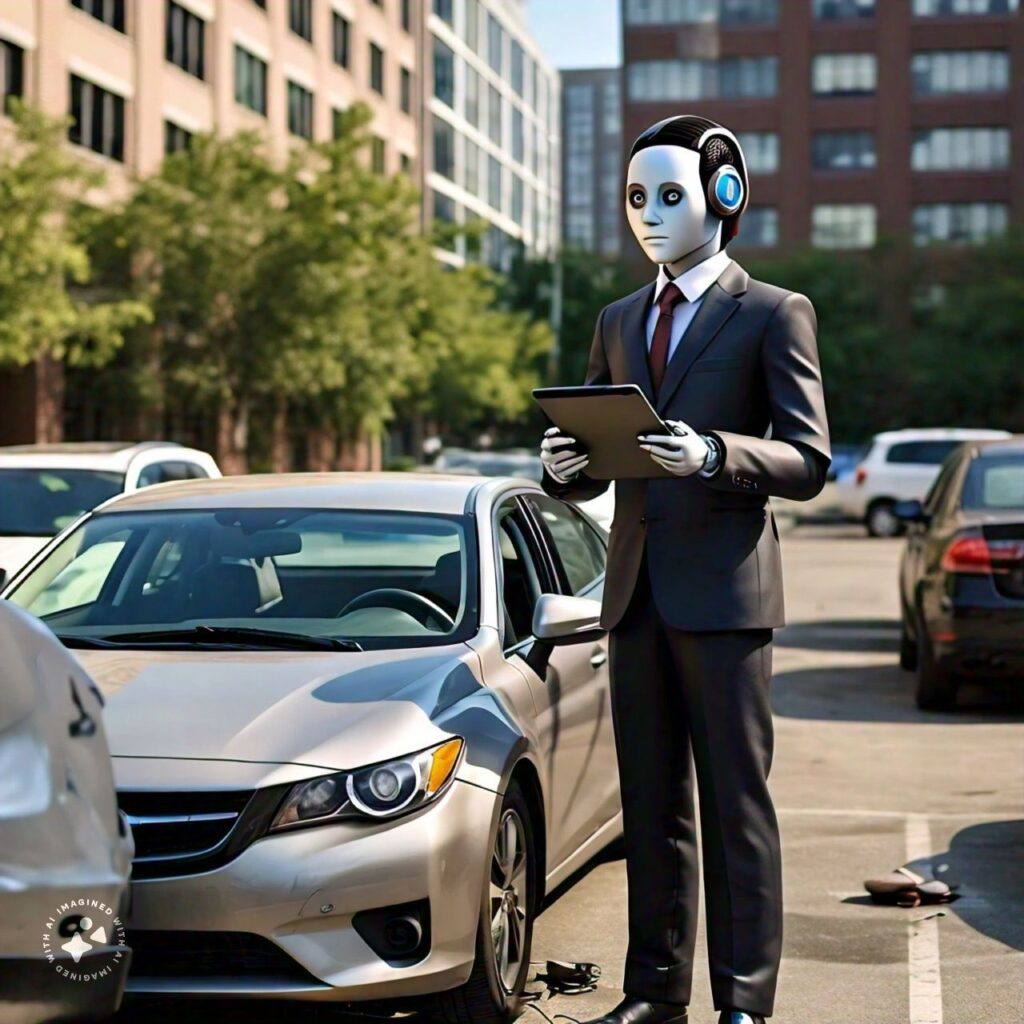
As artificial intelligence continues to advance at an unprecedented pace, its impact on various industries, including the legal sector, is undeniable. Personal injury law is no exception, with AI poised to revolutionize the way cases are handled, claims are processed, and justice is sought.
Enhanced Efficiency and Accessibility:
AI’s ability to automate repetitive tasks, analyze vast datasets, and generate documents in seconds promises to streamline the personal injury claims process significantly. This efficiency can lead to faster resolutions, reduced costs, and increased accessibility to legal services for individuals who might have otherwise struggled to afford representation.
Data-Driven Insights and Predictions:
AI algorithms can analyze massive amounts of historical case data, identifying patterns, trends, and potential outcomes. This can empower personal injury lawyers with valuable insights to assess case strength, predict settlement values, and make informed decisions about litigation strategies. Clients can also benefit from increased transparency and realistic expectations about their cases.
Personalized Client Experiences:
AI-powered chatbots and virtual assistants can provide 24/7 support to clients, answering questions, offering guidance, and updating them on case progress. This personalized attention can enhance the client experience, alleviate anxiety, and foster a stronger client-attorney relationship.
Improved Case Outcomes:
By leveraging AI’s analytical capabilities, lawyers can identify stronger arguments, uncover hidden evidence, and build more compelling cases. This can lead to higher settlement amounts, faster resolutions, and a greater likelihood of success in court.
Risk Assessment and Mitigation:
AI can help lawyers assess the risks associated with specific cases and develop strategies to mitigate them. This can involve identifying potential legal challenges, evaluating the credibility of witnesses, and predicting the likelihood of success in negotiations or litigation.
Challenges and Ethical Considerations:
- Bias and Fairness: Ensuring AI algorithms are fair and unbiased is crucial. Biases in training data can lead to discriminatory outcomes, potentially harming marginalized groups.
- Data Privacy and Security: Protecting sensitive client information and ensuring compliance with data protection regulations is paramount.
- Job Displacement: While AI can automate tasks, it may also lead to job displacement for certain legal professionals. Finding ways to integrate AI into the legal workforce without causing undue hardship is essential.
- Transparency and Accountability: The decision-making processes of AI algorithms should be transparent and explainable to ensure accountability and prevent misuse.
- Human Touch: While AI can handle many tasks, the importance of human judgment, empathy, and legal expertise cannot be overstated. Striking the right balance between AI and human involvement is key to maximizing the benefits of this technology.
The Road Ahead:
The future of AI in personal injury law is incredibly promising. As AI technology continues to advance, we can expect even more sophisticated tools and applications to emerge, further transforming the legal landscape. By embracing AI responsibly and ethically, personal injury lawyers can harness its power to provide better service, achieve more favorable outcomes for clients, and ultimately enhance access to justice for all.
The journey ahead will undoubtedly be filled with both opportunities and challenges. However, by staying informed, adapting to change, and collaborating with AI as a valuable tool, personal injury lawyers can navigate the evolving landscape and continue to champion the rights and interests of accident victims in the digital age.
Choosing the Right AI Accident Lawyer in the US: A Comprehensive Guide
The rise of AI accident lawyer in the US has presented a new landscape for those seeking legal assistance after an accident. With various platforms vying for your attention, selecting the right one can be daunting. This guide aims to demystify the process and equip you with the knowledge needed to make an informed decision.
Key Factors to Consider:
- State Availability and Licensing:
AI accident lawyer platforms may not be available in all states or have licensed attorneys in every jurisdiction. Confirm that the platform you’re considering operates legally in your state and has a network of qualified attorneys who can provide support if needed.
- Expertise and Specialization:
Look for platforms that specialize in personal injury law, particularly in the types of accidents you’ve experienced (e.g., car accidents, slip and falls, medical malpractice). Some platforms may have specific expertise in certain areas, such as motorcycle accidents or product liability.
- Transparency and Communication:
Transparency is key. Choose a platform that openly explains its fee structure, case evaluation process, and the role of AI in their services. Ensure they offer clear communication channels, such as live chat, email, or phone support, so you can easily get your questions answered.
- Technology and User Experience:
A user-friendly interface and intuitive navigation are crucial for a smooth experience. Explore the platform’s website or app to gauge its usability. Consider features like document upload, case tracking, and communication tools.
- Data Security and Privacy:
Your personal and medical information are sensitive. Prioritize platforms that adhere to strict data security protocols and have transparent privacy policies. Look for features like encryption and secure document storage.
- Reviews and Testimonials:
Research online reviews and testimonials from other users to gain insights into their experiences with the platform. Pay attention to feedback regarding customer service, responsiveness, and case outcomes.
- Hybrid Model vs. Pure AI:
Some platforms offer a hybrid model where AI is supported by human attorneys who can review your case, provide legal advice, and handle negotiations or litigation if necessary. Consider whether you prefer this hybrid approach or a purely AI-driven platform.
- Cost and Fee Structure:
Understand the platform’s fee structure before signing up. Some charge a flat fee, while others operate on a contingency basis (taking a percentage of your settlement). Ensure the fees are transparent and reasonable.
- Trial Period or Money-Back Guarantee:
Many reputable platforms offer a trial period or a money-back guarantee. This allows you to test the platform’s features and services before committing fully.
Questions to Ask Potential AI Accident Lawyer:
- Are you licensed to practice law in my state?
- What types of accident cases do you specialize in?
- How does your AI technology work to evaluate and handle cases?
- What is your fee structure?
- Do you offer a free consultation or case evaluation?
- What level of human support is available?
- How do you protect my personal information and data?
By carefully considering these factors and asking the right questions, you can confidently choose an AI accident lawyer platform that best suits your needs and maximizes your chances of a successful personal injury claim. Remember, while AI is a powerful tool, it’s important to find a platform that balances technological innovation with human expertise and personalized support.
AI Lawyer for Car Accident in the US: A Growing Trend

Artificial intelligence (AI) is making inroads into various industries, and the legal field is no exception. In the realm of car accidents, AI-powered legal platforms are emerging as tools to assist individuals with their claims. These platforms, often called “AI accident lawyer” or “AI legal assistant,” aim to streamline the process, reduce costs, and improve access to justice for accident victims.
In the US, AI lawyer for car accidents is a relatively new but increasingly popular option for individuals seeking legal assistance after a collision. These platforms use artificial intelligence to streamline and automate various aspects of the personal injury claims process, often making it more affordable and efficient than traditional law firms.
Potential Benefits of AI Lawyer for Car Accidents:
- Efficiency and Speed: AI can quickly analyze vast amounts of data related to your accident, including police reports, medical records, and insurance policies. This expedites the initial assessment of your case and potential claim value.
- Accessibility and Affordability: AI legal services are often more affordable than traditional attorneys, making them a viable option for individuals with limited financial resources. They also offer 24/7 online access, making it convenient to seek legal assistance.
- Objectivity and Accuracy: AI algorithms are designed to be unbiased and objective, analyzing your case based solely on the facts and applicable laws. They can also help identify potential legal issues that you might have overlooked.
- Document Generation: AI platforms can automatically generate demand letters, settlement agreements, and other legal documents, saving you time and effort.
Limitations of AI Lawyer for Car Accidents:
- Complexity of Cases: While AI is adept at handling straightforward cases, it may struggle with complex legal issues requiring human judgment and negotiation skills.
- Lack of Personal Touch: AI cannot provide the same level of emotional support and personalized guidance as a human lawyer. Accident victims often benefit from the empathy and reassurance that a human lawyer can offer.
- Limited Scope of Services: AI lawyers primarily focus on the initial stages of a claim, such as case assessment and document preparation. If your case requires litigation, you will likely need to hire a traditional attorney.
- Regulatory Concerns: The use of AI in the legal field is relatively new and evolving. Some states have regulations regarding AI legal services, so it’s important to ensure that the platform you choose is compliant with your state’s laws.
Top AI Lawyers for Car Accidents in the US
While the concept of fully autonomous “AI lawyers” for car accidents is still emerging, several platforms in the US leverage AI technology to streamline and enhance the legal process for personal injury claims. Here are some notable options:
1. DoNotPay:
- Strengths: This widely recognized platform boasts AI-powered tools for various legal needs, including car accident claims. It assists in gathering evidence, generating demand letters, and negotiating with insurance companies.
- Limitations: Its scope might be limited for complex cases requiring extensive legal expertise.
- Best For: Individuals seeking a convenient and user-friendly platform for straightforward car accident claims.
2. Accident.com:
- Strengths: This platform connects you with a network of experienced car accident attorneys who utilize AI tools to optimize their services. It offers a comprehensive approach with human legal expertise combined with AI efficiency.
- Limitations: Costs may vary depending on the chosen attorney and the complexity of your case.
- Best For: Individuals who prefer a hybrid approach with AI support and access to an experienced car accident lawyer.
3. Injury Lawyer:
- Strengths: This specialized platform focuses on personal injury cases, including car accidents. It uses AI to match you with suitable attorneys in your area and provides resources for understanding your legal options.
- Limitations: Its AI capabilities might be limited compared to other platforms with more extensive AI-powered tools.
- Best For: Individuals seeking a specialized platform for connecting with personal injury lawyers and accessing legal resources.
4. Legal Robot:
- Strengths: This platform excels in contract review and analysis, utilizing AI to help you understand complex insurance policies and settlement agreements. It also offers a “legal health check” feature to assess your legal needs.
- Limitations: Its primary focus is on contract review, and its services might not cover the entire car accident claims process.
- Best For: Individuals seeking AI assistance in understanding legal documents related to their car accident claim.
5. Casetext:
- Strengths: This powerful AI-powered legal research tool helps you find relevant case law, statutes, and regulations to support your claim. It’s a valuable resource for gathering legal information and building a stronger case.
- Limitations: It doesn’t offer direct legal representation or case management services.
- Best For: Individuals with some legal knowledge who want to conduct their own research and supplement the services of a lawyer.
Choosing the Right AI Lawyer:
- Availability in Your State: Ensure the AI lawyer platform operates legally in your state and can connect you with licensed attorneys if needed.
- Expertise: Look for platforms specializing in car accident claims and with a proven track record of success.
- Transparency: Choose platforms that clearly explain their fees, processes, and the role of AI in their services.
- Customer Support: Opt for platforms with responsive customer support channels to address any questions or concerns.
Important Considerations:
- Complexity: AI lawyers excel at handling straightforward cases but may not be suitable for complex legal battles.
- Human Touch: AI lacks the emotional support and nuanced judgment that human lawyers provide.
- Cost: While AI lawyers are often more affordable, they may not be free, and some charge contingency fees.
AI lawyers are a valuable resource for car accident victims in the US, offering convenience, efficiency, and affordability. However, they are not a replacement for human legal expertise in complex cases. By carefully evaluating your options and understanding the limitations of AI, you can choose the best approach for your specific situation.
Remember, seeking legal assistance after a car accident is crucial to protect your rights and ensure you receive fair compensation for your injuries and damages. Whether you opt for an AI lawyer or a traditional law firm, taking action promptly is key to a successful outcome.
Conclusion: AI Accident Lawyer
AI accident lawyer is transforming the personal injury claims process, offering a faster, more affordable, and accessible option for accident victims seeking legal assistance. While AI is not a magic bullet for every case, its ability to streamline processes and provide data-driven insights is undeniable.
As AI technology continues to evolve, we can expect AI accident lawyer to play an increasingly important role in personal injury law, helping to ensure fair compensation for accident victims.
Discover more from Digital Wealth Guru
Subscribe to get the latest posts sent to your email.


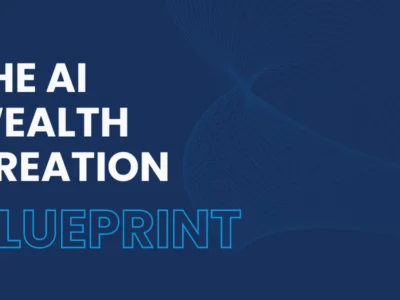
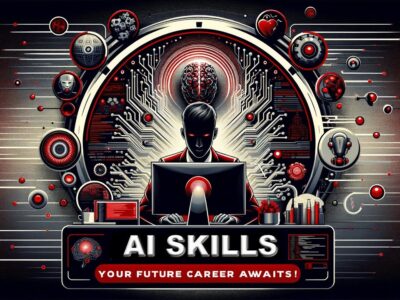

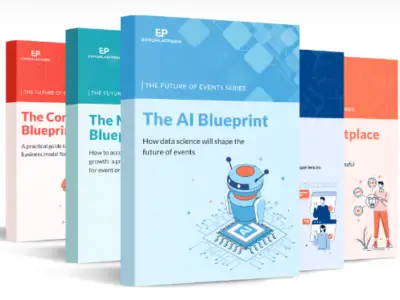


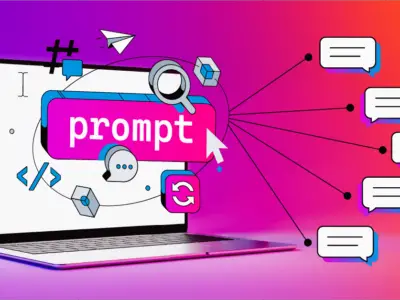
Comments